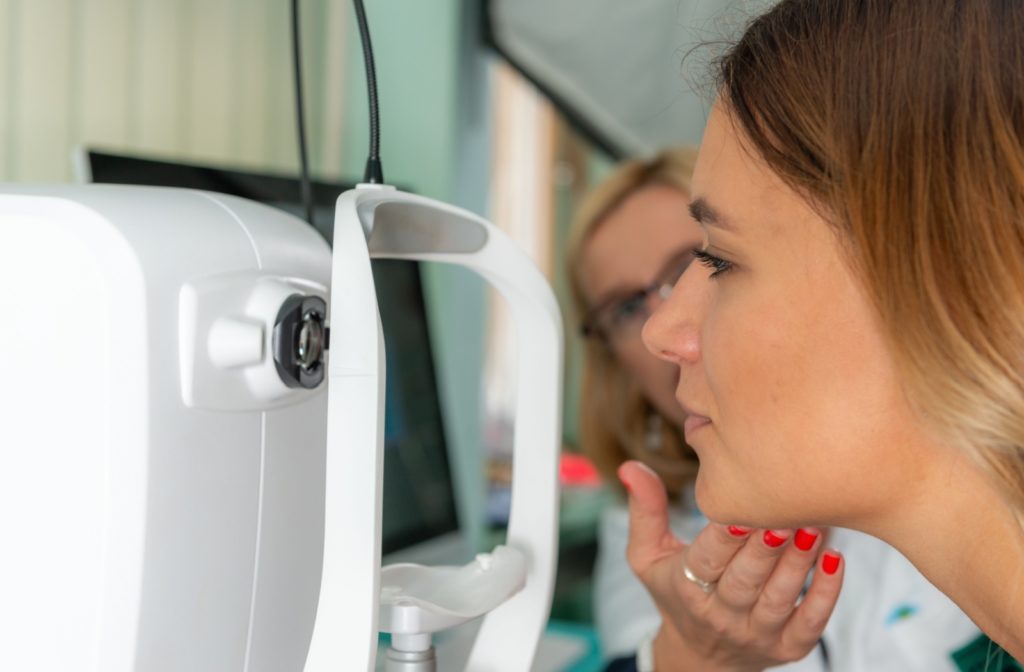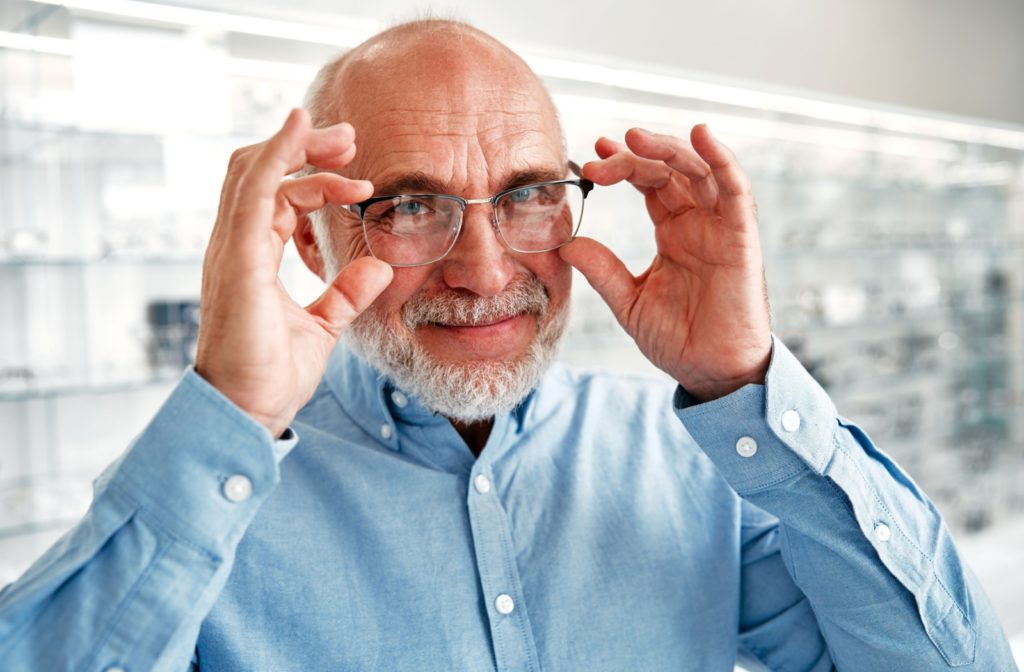Taking care of your vision is essential to maintaining your overall quality of life. Whether it’s due to natural aging, increased screen time, or poor lifestyle habits, vision changes can affect anyone. The good news is that there are actionable steps you can take to keep your eyesight sharp and healthy. Preventing your vision from getting worse requires proactive care, consistent habits, and professional attention. We recommend the following 10 tips:
- Regular eye exams
- Reduced screen time
- Wear sunglasses
- Eat a healthy, balanced diet
- Regular physical activity
- Practice good eye hygiene
- Prevent or treat dry eye disease
- Recognize signs of vision problems
- Wear protective eyewear when needed
- Stay informed about your eye health
To get started, make sure to schedule regular comprehensive eye exams and explore customized eyewear options tailored to your needs with Total Vision Richmond.
Why Is Vision Care Important?
Your vision plays a crucial role in daily activities—from driving and working to reading and enjoying leisure time. However, many people overlook the importance of eye care until they notice a decline. By taking preventive steps, you can protect your eyesight and reduce the risk of developing serious conditions like glaucoma, cataracts, and macular degeneration.
Let’s explore some effective strategies to prevent your vision from getting worse.
Schedule Regular Eye Exams
Routine eye exams are your first line of defense against deteriorating vision. Eye care professionals can detect early signs of vision problems or underlying conditions, such as diabetes or hypertension, that may affect your eyesight. Even if you feel your vision is fine, annual exams make sure potential issues are caught and treated early.
During an exam, your eye doctor will check for changes in prescription, evaluate your overall eye health, and recommend treatments or corrective lenses if needed. Prioritizing these check-ups is critical for maintaining long-term eye health.
Reduce Screen Time with the 20-20-20 Rule
Prolonged use of digital screens can lead to eye strain, blurry vision, and discomfort—a condition known as digital eye strain or computer vision syndrome. To combat these effects, follow the 20-20-20 Rule:
- Every 20 minutes, take a 20-second break and look at something 20 feet away.
This practice relaxes the eye muscles, reduces strain, and helps prevent long-term issues caused by excessive screen exposure. Additionally, adjust your screen brightness, use blue-light-blocking glasses, and check that your workspace is ergonomically set up.
Protect Your Eyes with Sunglasses
Exposure to ultraviolet (UV) rays can speed up age-related eye problems like cataracts and macular degeneration. Wearing sunglasses that block 100% of UVA and UVB rays is one of the easiest ways to safeguard your vision outdoors. Look for polarized lenses to reduce glare, and opt for wraparound frames for added protection.
Prioritize a Vision-Friendly Diet
What you eat has a direct impact on your eye health. Include nutrient-rich foods in your diet to promote optimal vision. Key nutrients include:
- Vitamin A: Found in carrots, sweet potatoes, and leafy greens, it supports the retina and prevents night blindness.
- Lutein and Zeaxanthin: Found in spinach, kale, and eggs, these antioxidants protect the eyes from harmful blue light.
- Omega-3 Fatty Acids: Found in fish like salmon, they reduce dry eye symptoms and support retinal health.
- Vitamin C and E: Found in citrus fruits, nuts, and seeds, these vitamins protect against age-related eye conditions.
Incorporating these foods into your meals can strengthen your eyes and help prevent vision from worsening.

Maintain a Healthy Lifestyle
A healthy lifestyle benefits your entire body, including your eyes. Regular physical activity improves blood circulation, which makes sure that your eyes receive oxygen and nutrients. Managing chronic conditions like diabetes and high blood pressure is also essential to prevent complications like diabetic retinopathy, which can lead to vision loss.
In addition to exercising, avoid smoking, as it significantly increases the risk of cataracts and macular degeneration. Quitting smoking is one of the most impactful changes you can make for your overall health, including your vision.
Practice Good Eye Hygiene
Whether you wear contact lenses or not, maintaining good hygiene is critical for eye health. If you use contacts, always wash your hands before handling them, clean and store them properly, and never wear them beyond the recommended duration. Poor hygiene can lead to infections or even corneal damage, which can worsen your vision.
For those who don’t wear contacts, cleaning your eyes with clean water and avoiding touching them frequently can help prevent irritation and infections.
Avoid Dry Eye Syndrome
Dry eyes can lead to discomfort and blurry vision. If you work in an air-conditioned environment or spend long hours in front of screens, you may experience symptoms of dryness. To combat this, try the following:
- Use artificial tears or lubricating eye drops.
- Blink often, especially when using screens.
- Place a humidifier in your workspace to add moisture to the air.
Keeping your eyes hydrated will prevent strain and irritation.
Recognize Warning Signs of Vision Decline
Being aware of the early signs of vision problems allows you to address them promptly. Symptoms to watch for include:
- Difficulty focusing on objects up close or far away.
- Frequent headaches or eye strain.
- Blurred or double vision.
- Sensitivity to light.
If you notice any of these symptoms, don’t delay—schedule an appointment with your eye doctor to discuss your concerns.
Protect Your Eyes During Activities
If you’re engaged in activities like sports, home improvement projects, or working with hazardous materials, always wear protective eyewear. Safety goggles, helmets, or glasses designed for specific activities can prevent accidents that could lead to permanent vision damage.
Stay Informed About Eye Health
Educating yourself about vision care and staying informed about the latest developments in eye health is key to prevention. Resources like your eye care provider’s blog or newsletter can offer helpful tips, product recommendations, and updates on treatments.
Keeping Your Vision Clear for the Future
Preserving your vision is a lifelong commitment that involves regular care, healthy habits, and professional attention. By scheduling regular eye exams, following the 20-20-20 rule, eating a balanced diet, and protecting your eyes from UV rays and strain, you can prevent your vision from getting worse and enjoy clear eyesight for years to come.
If you’re ready to take the next step toward healthier vision, schedule an eye exam with Total Vision Richmond today and explore our resources for additional tips on protecting your eyesight.


